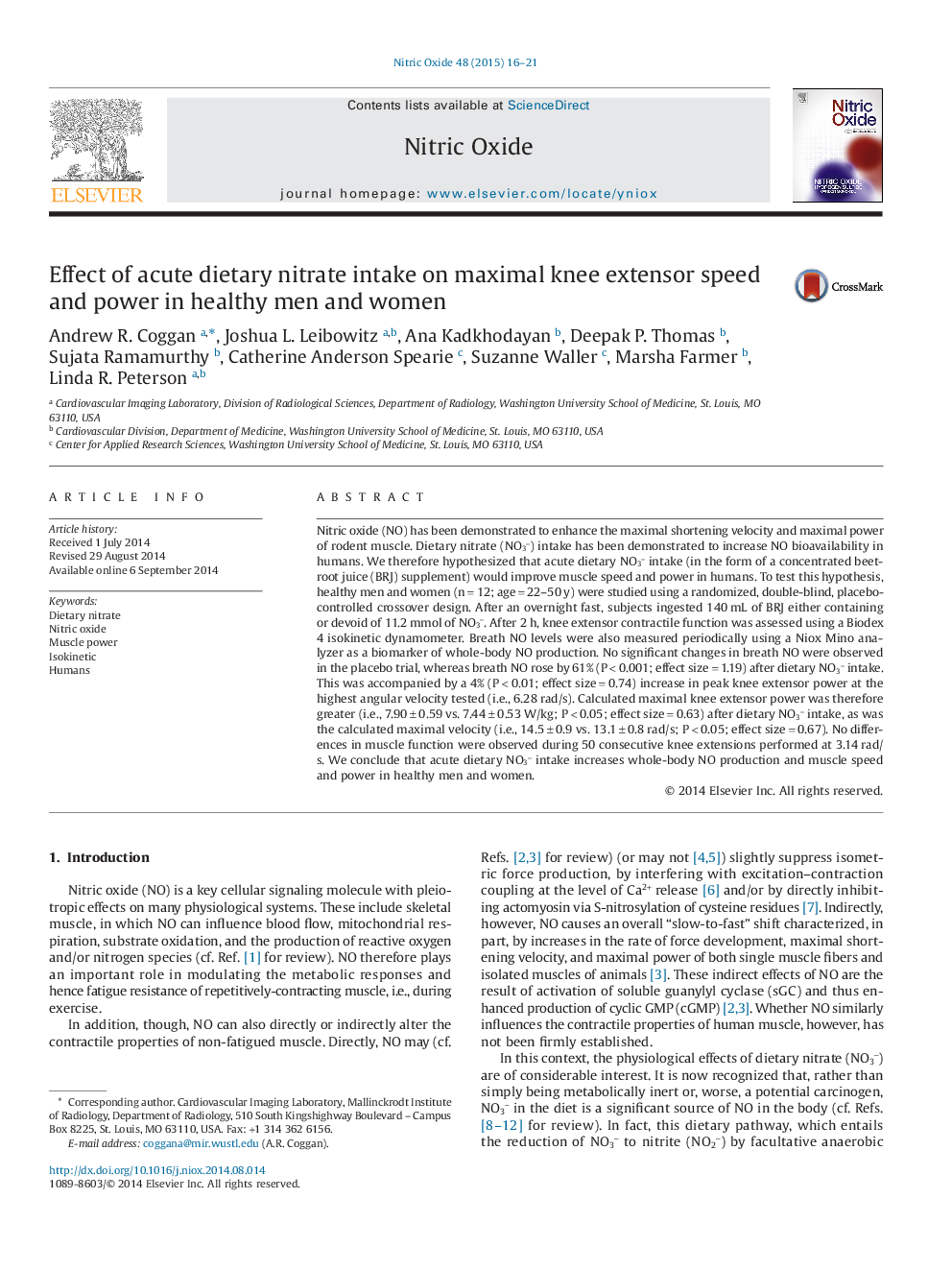| کد مقاله | کد نشریه | سال انتشار | مقاله انگلیسی | نسخه تمام متن |
|---|---|---|---|---|
| 2000458 | 1541611 | 2015 | 6 صفحه PDF | دانلود رایگان |
• Acute dietary NO3− intake increased NO availability (breath NO) by 61% (P < 0.001; effect size = 1.19).
• Maximal velocity of knee extension increased by 11% (P < 0.05; effect size = 0.67).
• Maximal knee extensor power also increased by 6% (P < 0.05; effect size = 0.63).
• Performance during a 50 contraction fatigue test did not differ between placebo and nitrate trials.
• Dietary NO3− increases muscle speed and power in healthy men and women.
Nitric oxide (NO) has been demonstrated to enhance the maximal shortening velocity and maximal power of rodent muscle. Dietary nitrate (NO3−) intake has been demonstrated to increase NO bioavailability in humans. We therefore hypothesized that acute dietary NO3− intake (in the form of a concentrated beetroot juice (BRJ) supplement) would improve muscle speed and power in humans. To test this hypothesis, healthy men and women (n = 12; age = 22–50 y) were studied using a randomized, double-blind, placebo-controlled crossover design. After an overnight fast, subjects ingested 140 mL of BRJ either containing or devoid of 11.2 mmol of NO3−. After 2 h, knee extensor contractile function was assessed using a Biodex 4 isokinetic dynamometer. Breath NO levels were also measured periodically using a Niox Mino analyzer as a biomarker of whole-body NO production. No significant changes in breath NO were observed in the placebo trial, whereas breath NO rose by 61% (P < 0.001; effect size = 1.19) after dietary NO3− intake. This was accompanied by a 4% (P < 0.01; effect size = 0.74) increase in peak knee extensor power at the highest angular velocity tested (i.e., 6.28 rad/s). Calculated maximal knee extensor power was therefore greater (i.e., 7.90 ± 0.59 vs. 7.44 ± 0.53 W/kg; P < 0.05; effect size = 0.63) after dietary NO3− intake, as was the calculated maximal velocity (i.e., 14.5 ± 0.9 vs. 13.1 ± 0.8 rad/s; P < 0.05; effect size = 0.67). No differences in muscle function were observed during 50 consecutive knee extensions performed at 3.14 rad/s. We conclude that acute dietary NO3− intake increases whole-body NO production and muscle speed and power in healthy men and women.
Journal: Nitric Oxide - Volume 48, 1 August 2015, Pages 16–21
